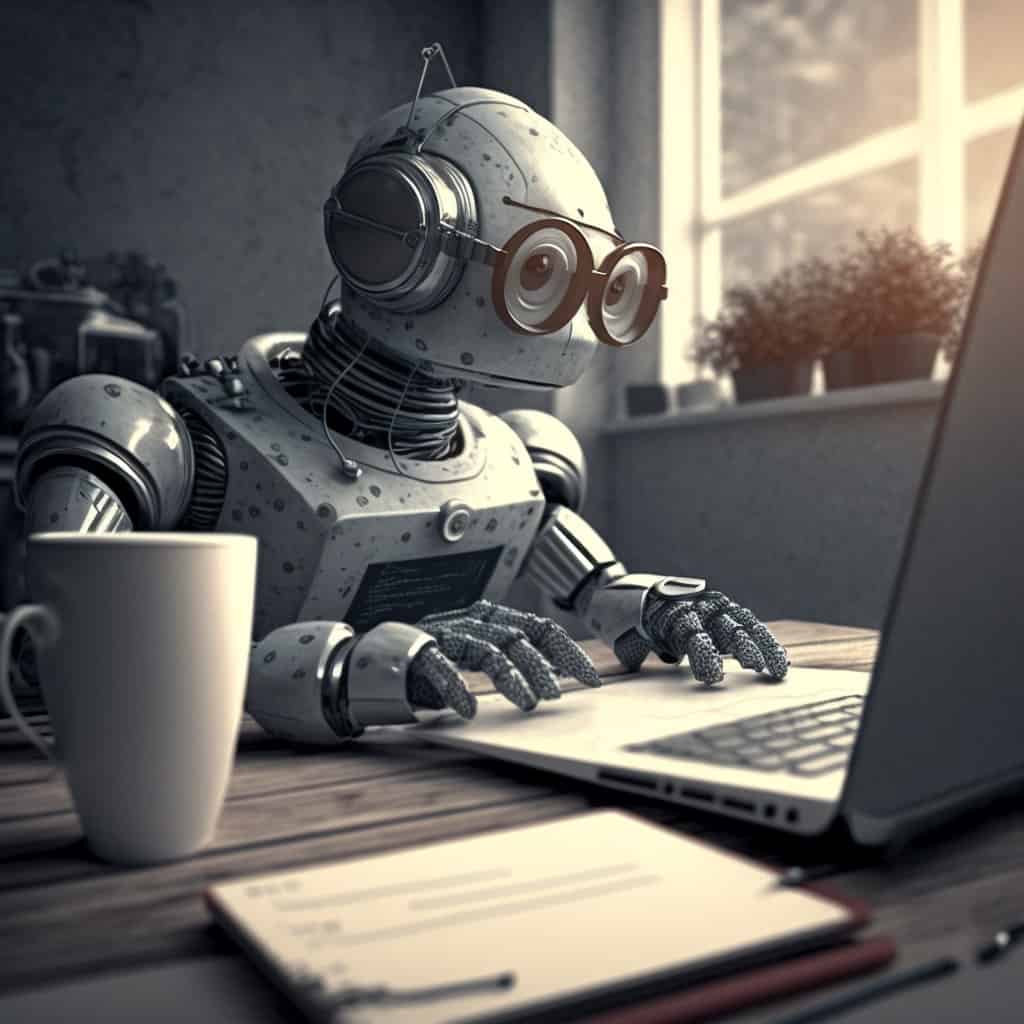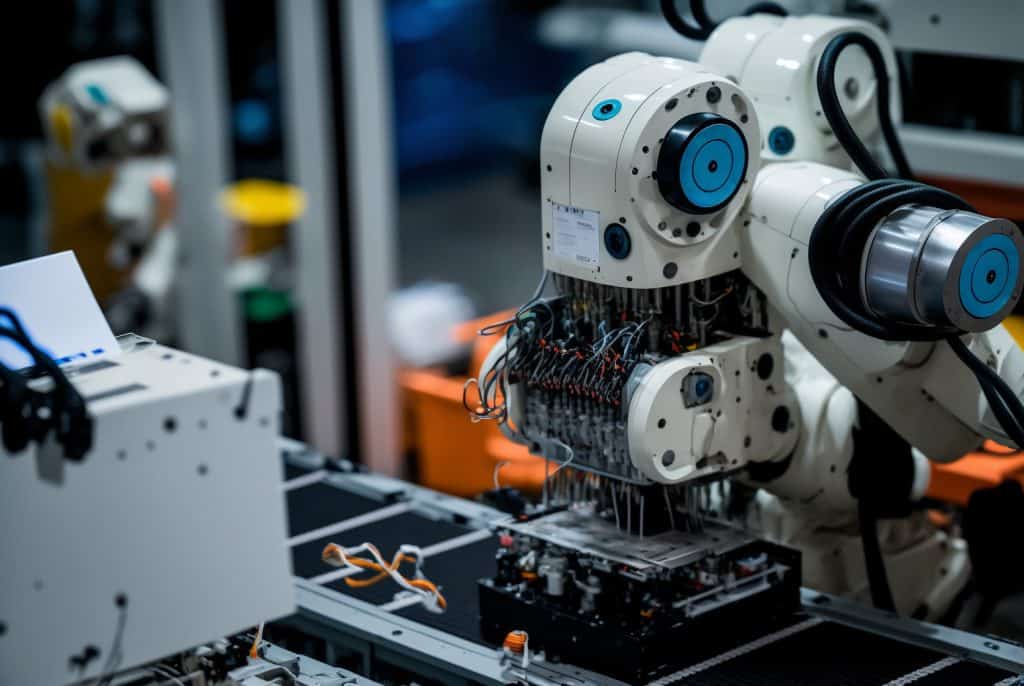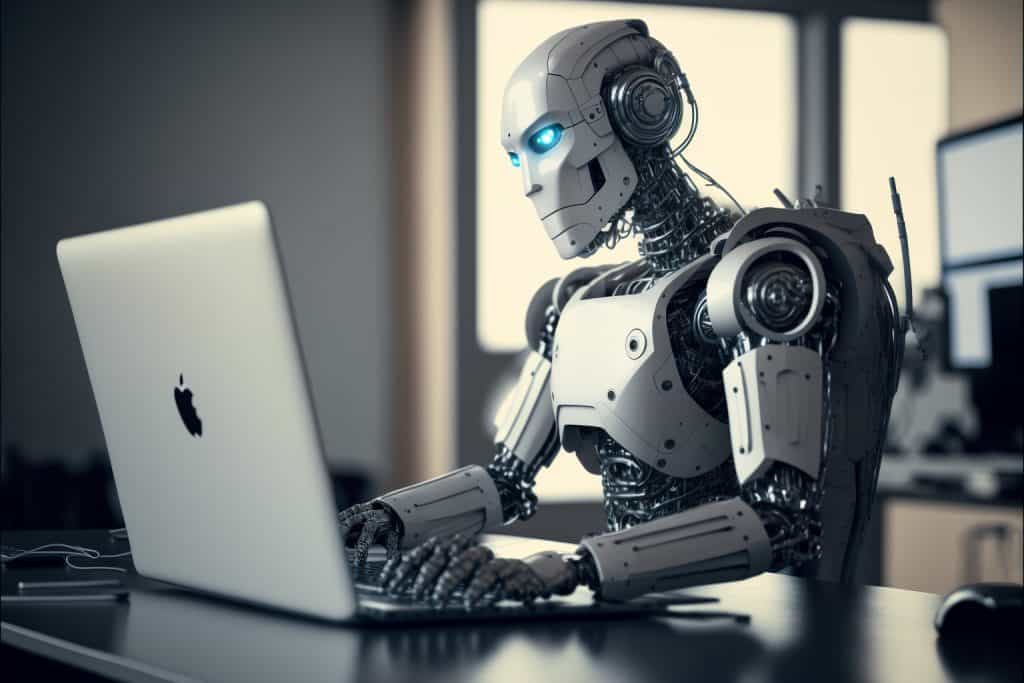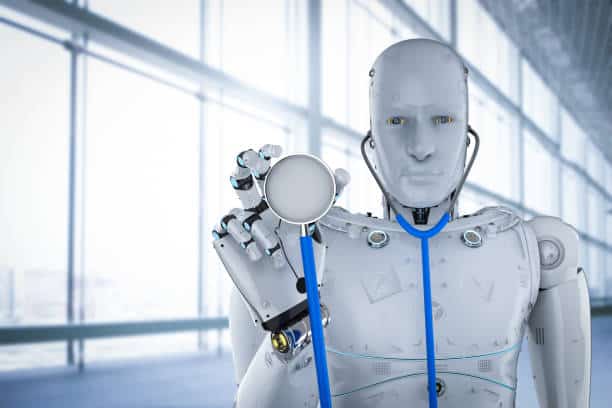Artificial Intelligence or AI – What is it?

Artificial intelligence, or AI, has been a hot topic in recent years. But what exactly is AI, and how does it work? We’re going to answer those question right away.
At its most basic, artificial intelligence is a form of computer science that aims to create intelligent machines that can think and act like humans. These intelligent machines are designed to learn from their experiences, just like we do, and use this knowledge to make decisions and solve problems.
There are several different types of AI, ranging from simple rule-based systems to complex neural networks. The most well-known type of AI is probably th especific AI, which is designed to perform a specific task or tasks, this could include things like facial recognition software or self-driving cars.
One of the main ways that AI is able to learn and make decisions is through machine learning. This involves feeding large amounts of data into an AI system and allowing it to analyze the data and make connections on its own.
For example, if an AI system is given a large dataset of images of cats and dogs, it can learn to identify the differences between the two and classify them correctly.
Another key aspect of AI is natural language processing, or NLP. This involves enabling computers to understand, interpret, and generate human language. This is a difficult task, as human language is complex and nuanced, with many different dialects and ways of expressing ideas.
Artificial Intelligence Use Cases

So, what are some of the potential uses for AI? One of the most exciting possibilities is in healthcare, where AI could be used to analyze medical data and provide recommendations for treatment. AI could also be used to improve transportation, whether it’s through self-driving cars or optimizing transportation routes.
In the business world, AI could be used to analyze data and make better business decisions, or even to automate certain tasks.
Overall, artificial intelligence has the potential to revolutionize many aspects of our lives. While it’s important to consider the potential risks and ethical concerns, the benefits of AI are too great to ignore. As AI continues to advance, it will be interesting to see what new and exciting developments emerge in the field.
AI Impact In Our Daily Lives – How is it Changing How We Live and Work?
Artificial intelligence is changing the way we live and work in countless ways. From the way we communicate with each other to the way we do business, AI is having a significant impact on our daily lives.
One of the most obvious ways that AI is changing the way we live is through the use of personal assistants like Apple’s Siri or Amazon’s Alexa. These AI-powered assistants can understand and respond to voice commands, making it easier for us to get things done without having to manually perform tasks ourselves.
In the business world, AI is being used to analyze data and make better decisions. By analyzing large amounts of data, AI can identify patterns and trends that may not be immediately obvious to humans.
This can be used to make more informed business decisions, such as identifying which products are most popular or identifying inefficiencies in business processes.
If you want to know more about what AI can do in the business industry, check out this article

But this is not all, AI is also being used in a variety of industries to automate certain tasks. For example, in manufacturing, AI can be used to control and monitor complex machinery, reducing the need for human labor.
In the service industry, AI-powered chatbots can handle customer inquiries, freeing up human customer service representatives to focus on more complex tasks.
It’s important that we carefully consider the potential risks and benefits of AI and ensure that it is used in a responsible and ethical manner.
The Future of Artificial Intelligence
A good prediction for the future of AI is that it will be used to perform a wider range of tasks. Some experts believe that in the future, AI will be used to do everything, from performing surgery, analyzing legal documents, or even writing and composing the music we’ll listen to.
One of the clear use cases of AI will be in transportation, with self-driving cars and trucks becoming more common. This could have a huge impact on the way we get around, making transportation more efficient and potentially reducing the number of accidents on the road.
However, there are also concerns about the safety of self-driving vehicles and the potential for them to malfunction or be hacked.
Let’s see a few examples

As AI continues to advance, it has the potential to revolutionize the world in countless ways. Let’s see a few examples of how AI could shape the future:
- Healthcare: AI could be used to analyze medical data and make more accurate diagnoses, potentially leading to better patient outcomes. AI could also be used to monitor patients remotely, allowing for more efficient and cost-effective care.
- Education: AI could be used to personalize learning experiences and tailor them to individual students’ needs and abilities. AI could also be used to grade assignments and provide feedback, freeing up teachers to focus on more important tasks.
- Environmental sustainability: AI could be used to analyze data and identify patterns in order to predict and prevent environmental disasters. AI could also be used to optimize resource usage, leading to a more sustainable world.
- Manufacturing: AI could be used to control and monitor complex machinery, increasing efficiency and reducing the need for human labor. AI could also be used to optimize production processes, leading to cost savings and reduced waste.
- Customer service: AI-powered chatbots could be used to handle customer inquiries, freeing up human customer service representatives to focus on more complex tasks.
